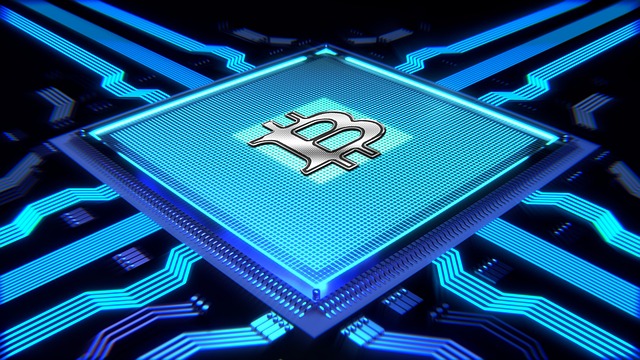Empowering Financial Freedom: Decentralized Finance Benefits
Empowering Financial Freedom: Decentralized Finance Benefits

Understanding the Basics of Decentralized Finance
Decentralized finance, also known as DeFi, is an innovative financial system that operates on blockchain technology. Unlike traditional finance, which relies on centralized institutions such as banks and governments, DeFi aims to create a more inclusive and accessible financial ecosystem. In this decentralized system, transactions are peer-to-peer, eliminating the need for intermediaries.
One of the key features of DeFi is the use of smart contracts, which are self-executing contracts with the terms of the agreement directly written into code. Smart contracts enable automated and trustless transactions, as they are executed only when specific conditions are met. This eliminates the need for intermediaries, reducing costs and increasing efficiency. Additionally, DeFi provides opportunities for individuals to participate in the financial system, regardless of their geographic location or social status. Users can access various financial services, such as lending, borrowing, and trading, directly from their digital wallets, without the need for a traditional bank.
How Decentralized Finance Can Empower Individuals
Decentralized finance (DeFi) has emerged as a transformative force in the financial landscape, offering unprecedented opportunities for individuals to empower themselves. By utilizing blockchain technology, DeFi provides a decentralized alternative to traditional financial systems, enabling individuals to have full control over their financial transactions and assets.

One of the key ways in which DeFi empowers individuals is by enabling financial inclusion on a global scale. Traditional financial systems have often left behind marginalized communities and individuals who lack access to banking services or are excluded due to stringent requirements. DeFi eliminates the need for intermediaries, making it accessible to anyone with a smartphone and an internet connection.

The Potential for Financial Inclusion through Decentralized Finance
Financial inclusion is a pressing global issue that affects billions of individuals around the world. Many people, especially those in developing countries, lack access to basic financial services such as banking, loans, and insurance. This lack of access leaves them vulnerable to poverty and limits their opportunities for economic growth. However, decentralized finance (DeFi) holds tremendous potential in addressing this problem and promoting financial inclusion for all.
With DeFi, individuals can gain access to financial services without relying on traditional banking systems. By leveraging blockchain technology, DeFi platforms can offer a range of services, such as lending, borrowing, and asset management, directly to users. This eliminates the need for intermediaries, reduces costs, and enables individuals to participate in financial activities regardless of their location or socioeconomic status. Furthermore, DeFi systems can operate 24/7, providing convenient and inclusive services to individuals who may be excluded from traditional banking hours. As a result, DeFi has the power to level the playing field and empower individuals by giving them control over their financial lives.
Exploring the Advantages of Decentralized Financial Systems
Decentralized financial systems, also known as decentralized finance or DeFi, are gaining traction as an alternative to traditional centralized financial systems. One of the key advantages of DeFi is its ability to provide financial services to individuals without the need for intermediaries such as banks. This means that individuals can access financial services directly, without going through a middleman or dealing with the limitations that traditional financial institutions often impose.
Another advantage of decentralized financial systems is the increased transparency they offer. Since transactions are recorded on a public blockchain, anyone can verify and trace them, thus eliminating the need for trust in third parties.

The Role of Blockchain Technology in Decentralized Finance
Decentralized finance, also known as DeFi, has gained significant attention in recent years. At the heart of this innovative financial system lies blockchain technology, a decentralized ledger that ensures transparency, immutability, and security of transactions. Blockchain technology plays a crucial role in enabling the vast potential of decentralized finance by revolutionizing the way financial transactions are conducted and verified.
By utilizing blockchain technology, decentralized finance eliminates the need for intermediaries such as traditional banks or financial institutions. Instead, transactions are facilitated directly between users in a peer-to-peer manner, making the process more efficient and cost-effective. Blockchain offers the advantage of trustless and decentralized verification, ensuring that transactions can be executed securely and without the reliance on a central authority. This not only enhances financial inclusivity, but also allows individuals to have complete control over their assets and finances. With blockchain at its core, decentralized finance opens up a world of opportunities for individuals to participate in a more democratized and inclusive global financial system.
Opportunities for Wealth Creation and Growth in Decentralized Finance
The decentralized finance (DeFi) ecosystem presents a plethora of opportunities for individuals to create wealth and experience significant growth. One of the key advantages of DeFi is the accessibility it offers to anyone with an internet connection. Unlike traditional financial systems that often require hefty initial investments or stringent eligibility criteria, DeFi protocols are open to all, enabling even those with limited resources to participate in wealth creation.
Furthermore, DeFi provides individuals with the chance to diversify their investments and explore new avenues for growth. Through DeFi platforms, users can allocate their funds to various decentralized applications (dApps) that offer unique financial instruments like lending, borrowing, staking, and yield farming. These opportunities allow users to capitalize on the potential for higher returns, especially in comparison to traditional low-interest savings accounts or investment options. By exploring these novel avenues, individuals can actively engage in wealth creation while diversifying their financial portfolios.
In summary, the decentralized finance space holds immense potential for wealth creation and growth. Through its accessible nature and diverse range of investment opportunities, DeFi allows individuals to break free from traditional financial limitations and actively participate in building their financial futures. It’s an exciting time for the world of finance, where the decentralized revolution is empowering individuals to take charge of their wealth creation like never before.
Examining the Risks and Security Measures in Decentralized Finance
Decentralized finance (DeFi) offers a promising alternative to traditional financial systems, but it is not without risks. One of the main concerns in DeFi is the potential for smart contract vulnerabilities. Smart contracts, which are autonomous programs that execute transactions on the blockchain, are the backbone of many DeFi platforms. However, if these smart contracts are poorly coded or susceptible to hacking, there is a risk of funds being stolen or lost. This is why security audits and rigorous testing are crucial in mitigating these risks and ensuring the overall integrity of the DeFi ecosystem.
Another risk in DeFi is the possibility of market manipulation. With decentralized exchanges and protocols, the absence of traditional gatekeepers opens the door for bad actors to exploit loopholes for their own gain. This can include artificially inflating prices or manipulating trading volumes. To combat this, various measures such as decentralized governance models and transparency initiatives are being implemented. Additionally, the development of decentralized oracle systems aims to provide reliable external market data, reducing the potential for manipulation. Nevertheless, it is important for users to conduct thorough research and exercise caution when participating in DeFi projects to protect their assets.
• Smart contract vulnerabilities pose a significant risk in DeFi
• Poorly coded or hackable smart contracts can lead to funds being stolen or lost
• Security audits and rigorous testing are crucial in mitigating these risks
• Market manipulation is another concern in DeFi due to the absence of gatekeepers
• Bad actors can exploit loopholes to artificially inflate prices or manipulate trading volumes
• Decentralized governance models and transparency initiatives help combat market manipulation
• Development of decentralized oracle systems aims to provide reliable external market data
and reduce potential for manipulation
• Users should conduct thorough research and exercise caution when participating in DeFi projects.
The Impact of Decentralized Finance on Traditional Financial Institutions
Traditional financial institutions, such as banks and investment firms, have long held a dominant position in the financial industry. However, the rise of decentralized finance (DeFi) is beginning to challenge their supremacy. DeFi is built on blockchain technology, which eliminates the need for intermediaries and allows for peer-to-peer financial transactions. This innovative approach has the potential to disrupt traditional financial institutions by offering faster, more transparent, and more accessible services to individuals.
One of the significant impacts of DeFi on traditional financial institutions is the disintermediation of financial services. With decentralized finance, individuals can interact directly with the blockchain network, removing the need for intermediaries like banks to facilitate transactions. This not only reduces costs for individuals but also poses a threat to the existing revenue streams of traditional financial institutions. Additionally, DeFi allows for the creation of smart contracts, which automate financial agreements and eliminate the need for expensive legal documentation. This automation can significantly reduce the need for intermediaries, further challenging the role of traditional financial institutions.
Decentralized Finance and its Role in Economic Empowerment
Decentralized Finance, also known as DeFi, has emerged as a promising avenue for economic empowerment. Through its decentralized nature, DeFi seeks to provide individuals with greater control and access to financial services without the need for intermediaries. This has the potential to revolutionize the traditional financial system and empower individuals from all walks of life.
One of the key aspects of DeFi that contributes to economic empowerment is its inclusivity. Unlike traditional financial systems which may exclude certain individuals due to various reasons like geographical location or lack of documentation, DeFi opens up opportunities for financial inclusion. With just a smartphone and internet access, individuals can participate in DeFi protocols and access a wide range of financial services. This allows people to invest, borrow, and earn income in ways that were previously restricted to a select few. Whether someone is an unbanked individual in a remote area or someone seeking alternative investment options, DeFi provides a platform for economic empowerment by removing barriers and enabling financial participation.
The Future of Decentralized Finance: Trends and Predictions
The future of decentralized finance holds immense potential for growth and innovation. As more individuals and institutions recognize the benefits and opportunities offered by this emerging field, we can expect to see an increased adoption and integration of decentralized financial systems into our everyday lives. One of the key trends that will shape the future of decentralized finance is the continued development and refinement of blockchain technology. With its ability to securely and transparently record transactions, blockchain will play a crucial role in ensuring the integrity and efficiency of decentralized financial systems.
Another trend that we can anticipate is the expansion of decentralized finance beyond traditional financial services. Currently, decentralized finance primarily focuses on areas such as lending, borrowing, and trading. However, as the ecosystem evolves, we can expect to see the emergence of new and innovative use cases for decentralized finance. This could include applications in areas such as insurance, crowdfunding, and even governance. By decentralizing these processes and removing the need for intermediaries, decentralized finance has the potential to democratize access to financial services and empower individuals around the world.
What is decentralized finance?
Decentralized finance, also known as DeFi, refers to a financial system that operates on blockchain technology, allowing individuals to have more control over their financial transactions without the need for intermediaries like banks.
How can decentralized finance empower individuals?
Decentralized finance empowers individuals by providing them with access to financial services, such as lending, borrowing, and investing, without the need for a traditional financial institution. It allows people to have more control over their money and financial decisions.
Can decentralized finance promote financial inclusion?
Yes, decentralized finance has the potential to promote financial inclusion by providing access to financial services to those who are unbanked or underbanked. It allows individuals from all over the world to participate in the global financial system without any barriers.
What are the advantages of decentralized financial systems?
Decentralized financial systems offer several advantages, including lower transaction costs, increased transparency, enhanced security, and the ability to operate 24/7 without any restrictions. They also eliminate the need for intermediaries, making financial transactions more efficient.
How does blockchain technology play a role in decentralized finance?
Blockchain technology is the backbone of decentralized finance. It ensures transparency, immutability, and security of financial transactions by recording them in a decentralized and distributed ledger. It allows for trustless and transparent interactions between parties without the need for a central authority.
What opportunities for wealth creation and growth does decentralized finance offer?
Decentralized finance opens up opportunities for wealth creation and growth by providing individuals with access to various financial products and services, such as decentralized lending platforms, yield farming, and liquidity mining. It allows individuals to earn passive income and participate in the growth of decentralized projects.
What are the risks and security measures in decentralized finance?
While decentralized finance offers many benefits, it also comes with risks. Some of the risks include smart contract vulnerabilities, hacking attempts, and regulatory uncertainties. To mitigate these risks, individuals can use security measures like multi-factor authentication, audit smart contracts, and participate in reputable platforms.
How does decentralized finance impact traditional financial institutions?
Decentralized finance poses a potential threat to traditional financial institutions by challenging their role as intermediaries. It offers an alternative financial system that is more efficient, transparent, and accessible. Traditional financial institutions will need to adapt and innovate to remain relevant in the face of decentralized finance.
How does decentralized finance contribute to economic empowerment?
Decentralized finance contributes to economic empowerment by giving individuals more control over their finances and providing access to financial services regardless of their geographical location or social status. It allows people to participate in the global economy and make financial decisions that align with their goals.
What are the trends and predictions for the future of decentralized finance?
The future of decentralized finance looks promising, with the continued growth of decentralized lending platforms, decentralized exchanges, and other DeFi applications. We can expect increased adoption, integration with traditional finance, improved user experience, and the emergence of new innovative DeFi projects.
Todays Featured Product:
Buy, exchange and grow your crypto securely with a Ledger hardware wallet, combined with the Ledger Live app. It’s never been easier to keep your crypto safe and accessible. Buy direct from Ledger.com and get todays Special Offers Here.




